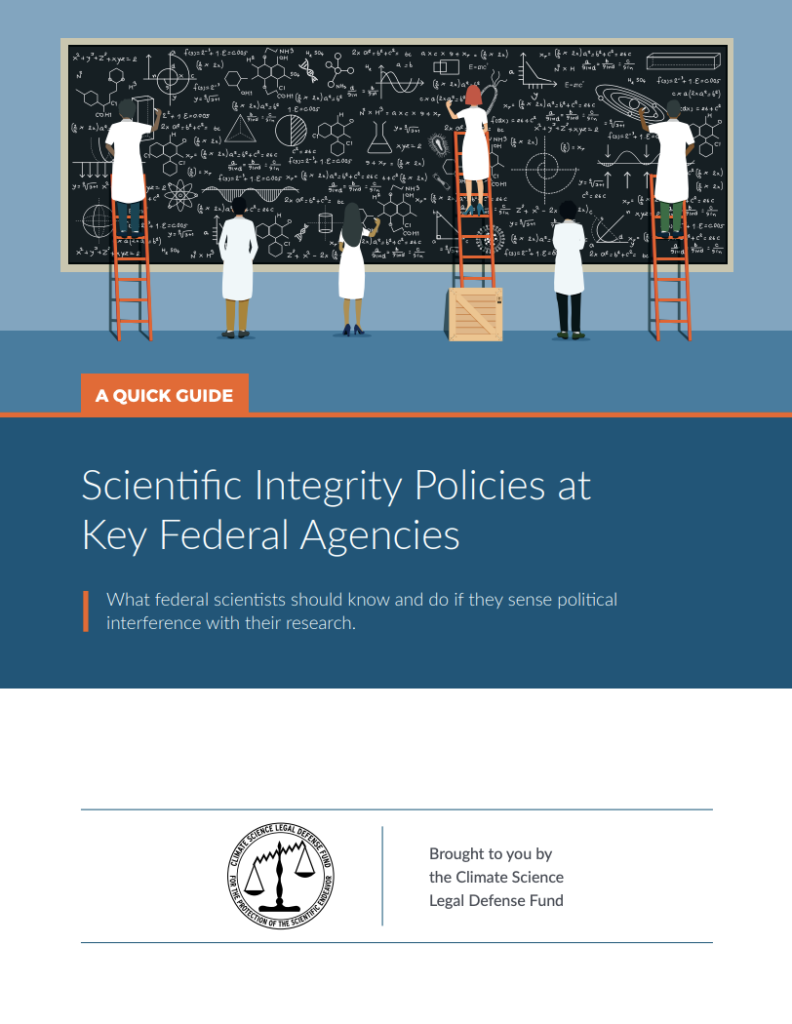Guides to Scientific Integrity at Federal Agencies
 This series examines the scientific integrity policies of the main federal scientific agencies in the United States. The guides are designed to help researchers understand their employer’s policy and navigate the process of filing a scientific integrity complaint. They also reveal which agencies have strong policies and where the policies are lacking.
This series examines the scientific integrity policies of the main federal scientific agencies in the United States. The guides are designed to help researchers understand their employer’s policy and navigate the process of filing a scientific integrity complaint. They also reveal which agencies have strong policies and where the policies are lacking.
Scientific integrity principles are indispensable to the missions and the functions of federal agencies. Many scientific agencies adopted scientific integrity policies following a 2009 memorandum issued by President Obama and a subsequent memorandum issued in 2010 by the White House Office of Science and Technology Policy.
The policies clarify how individual agencies interpret scientific integrity. In many cases, a policy also describes how a scientist should report a loss of scientific integrity, how the agency will investigate such claims and the rights of both a complainant and a person alleged to have committed a violation.
Agency scientists should consider familiarity with scientific integrity principles a crucial part of their jobs. The policies can ensure that the work of federal scientists isn’t censored or altered for political reasons and that the science relied on by these agencies for decision-making is free of fraud, fabrication, plagiarism, and other issues.
You can download a compilation of all 12 guides or download them individually.
These guides contain tips and best practices for scientists from all disciplines, but they aren’t a substitute for legal advice. Researchers facing a scientific integrity issue should contact us to request a free, confidential consultation with one of our attorneys.
Call (646) 801-0853 or send an email to lawyer@csldf.org to make an appointment.
- Scientific Integrity Policies at Key Federal Agencies Download pdf (12.41 MB)
- Federal Scientific Integrity Policies at a Glance Download pdf (56.65 KB)
- Centers for Disease Control and Prevention (CDC) Download pdf (1.1 MB)
- Department of Defense (DOD) Download pdf (1.09 MB)
- Department of Energy (DOE) Download pdf (1.09 MB)
- Department of Homeland Security (DHS) Download pdf (1.08 MB)
- Department of the Interior (DOI) Download pdf (1.1 MB)
- Department of State (DOS) Download pdf (1.07 MB)
- Environmental Protection Agency (EPA) Download pdf (1.09 MB)
- National Aeronautics and Space Administration (NASA) Download pdf (1.09 MB)
- National Institutes of Health (NIH) Download pdf (1.12 MB)
- National Oceanic and Atmospheric Administration (NOAA) Download pdf (1.09 MB)
- National Science Foundation (NSF) Download pdf (1.09 MB)
- United States Department of Agriculture (USDA) Download pdf (1.11 MB)